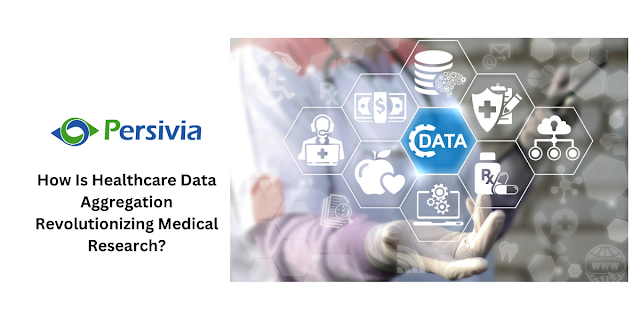Data Aggregation: Why Healthcare Needs it Now More Than Ever?
The volume of data being generated today in healthcare is
staggering. From EHRs and medical imaging to patient-generated data through
wearable devices, the abundance of information is both a boon and a challenge.
To make the purpose of this vast ocean of data, healthcare urgently needs an
efficient and effective solution – Data Aggregation.
Why is Data Aggregation in Healthcare Now
a Necessity?
Real-Time Decision-Making
In critical situations, quick decision-making can be a
matter of life and death. Data aggregation allows professionals to access
real-time data and make prompt and effective decisions.
Proactive Healthcare Management
With an aging population and an increase in chronic diseases, proactive healthcare management is crucial. Data consolidation facilitates the identification of high-risk patients, allowing healthcare providers to implement preventive measures and reduce hospitalizations
.
Healthcare Data Aggregation and Public
Health
Tracking Disease Outbreaks
In the face of pandemics and infectious diseases, Data
Aggregation in Healthcare plays a pivotal role in tracking and monitoring
disease outbreaks. By analyzing data on infection rates and geographical
patterns, public health authorities can devise effective containment
strategies.
Predictive Analytics for Population Health
Healthcare Data Aggregation and predictive analytics enable a proactive approach to
population health. By identifying trends and risk factors, healthcare providers
can allocate resources effectively and implement targeted interventions.
Improving Patient Outcomes through Data
Analysis
Personalized Treatment Plans
Data accumulation allows for the creation of custom-made
care plans catered to every patient's individual conditions and medical
records. Personalized medicine enhances treatment effectiveness and minimizes
adverse reactions.
Reducing Medical Errors
Data-driven healthcare significantly reduces the occurrence
of medical errors. With access to wide information, caregivers take good
decisions while reducing the likelihood of misdiagnoses and medication errors.
Data-Driven Healthcare Policy
Evidence-Based Decision Making
Policymakers rely on accurate data to create evidence-based
healthcare policies. Data aggregation in healthcare provides policymakers with
valuable insights into population health trends, resource allocation, and the
effectiveness of existing policies.
Monitoring Healthcare Trends
Information aggregation helps monitor healthcare trends and
identify emerging health issues. By staying informed, healthcare stakeholders
can proactively address challenges and ensure the continual improvement of
healthcare services.
Data Sharing and Collaboration in
Healthcare
Breaking Down Data Silos
Aggregating data promotes collaboration among healthcare
institutions by breaking down data silos. Seamless data sharing fosters
research collaborations and allows for a more comprehensive understanding of
medical conditions.
Inter-Institutional Data Exchange
Inter-institutional data exchange enables healthcare
providers to access patient information from different organizations. This
exchange of data enhances care coordination and eliminates redundancies in
healthcare services.
Visit Persivia to explore more about Healthcare Data
Aggregation and respective platforms!



Comments
Post a Comment